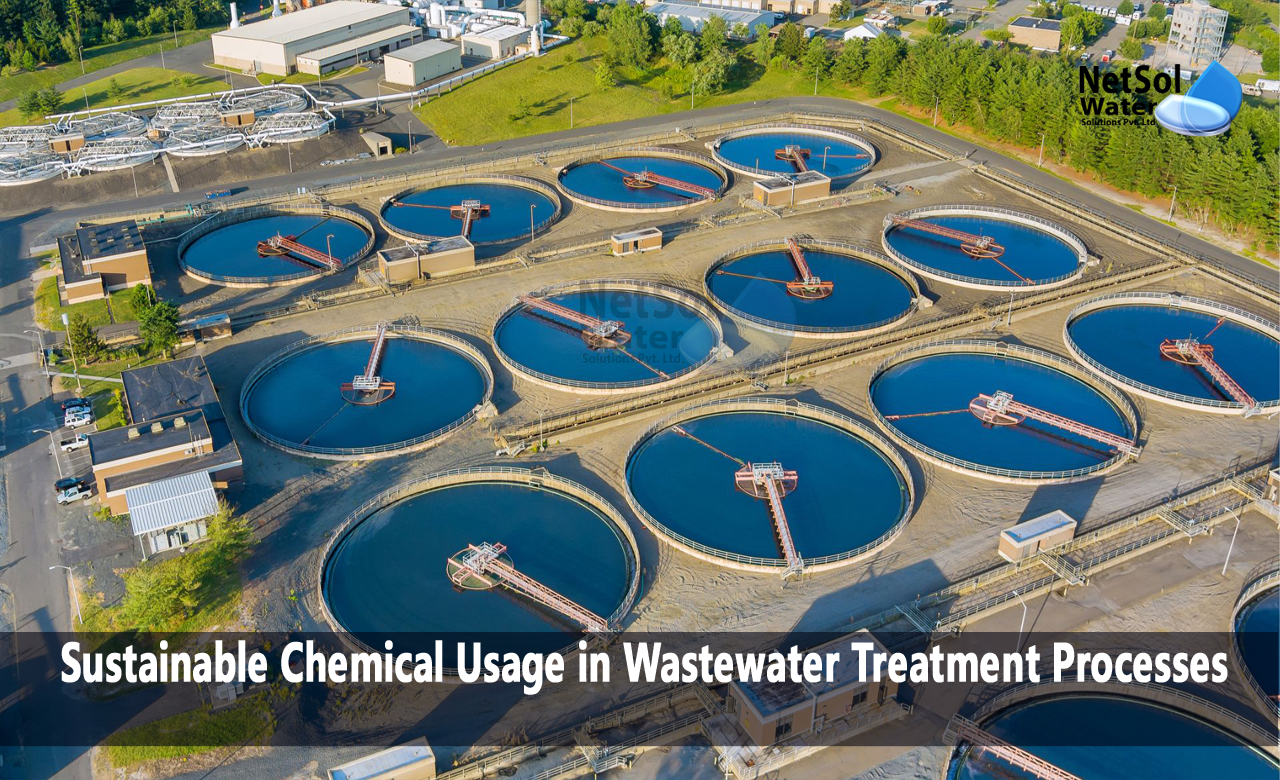Why do Sustainable Chemical Usage in Wastewater Treatment Processes?
Removing contaminants from wastewater through treatment is vital because it helps safeguard the environment and public health when clean water is released back to natural water bodies or used in other sectors. This process is critical when it comes to ensuring neat and clean water resources; however, some cases involve the use of chemicals that may be harming the environment. Using sustainable chemicals in wastewater treatment emerges as a response to this challenge—sustainable chemical usage in wastewater treatment- the essential.
Demands on Sustainable Chemicals.
Usually, wastewater treatment plants use a mixture of physical, chemical, and biological methods on wastewater to eliminate the contaminants. Such chemicals include those that help to solidify and flocculate particles, disinfect water, alter pH levels, and remove specific pollutants. However, the indiscriminate use of chemicals can lead to a host of problems:
Environmental Impact: Chemicals can produce poisonous by-products and pollute water and soil. They can threaten aquatic ecosystems and become dangerous for human and animal consumption.
Economic Costs: Wastewater treatment plants may have to incur high operating costs associated with purchasing, handling and disposing of chemicals, as excessive chemical use may be involved.
Resource Depletion: Many of the chemicals used in wastewater treatment come from non-renewable raw materials. However, overuse can also result in depletion of the resources leading to a rise in the prices.
Energy Consumption: Energy is needed for chemical manufacture and transport, releasing greenhouse gases in return.
Strategies for Sustainable Chemical Usage
Process Optimization: One of the primary strategies for sustainable chemical usage is optimizing the treatment process. By understanding the specific needs of a wastewater treatment plant, operators can reduce chemical use while maintaining or improving treatment efficiency. This may involve fine-tuning chemical dosages, changing dosing points, or using different chemicals altogether.
Green Chemicals: One of important steps in the direction of sustainability is using environmentally friendly or green chemicals. Most green chemicals are biodegradable, non-toxic, and less hazardous to the environment. These may be such as organic coagulants or bio-degradable polymers, which can be less aggressive than previous substitutes.
Advanced Monitoring and Control: Real-time data can also optimize Chemical dosages through installation of advanced Monitoring and Control systems. Thus, these systems make it possible to regulate chemical supplies in wastewater treatment plants according to influent quality, discharge flow, etc., thus minimizing the amount of chemicals used for no good reason.
Reuse and Recycling: Some of these chemicals can be reprocessed and retrieved. The utilization of systems which recapture and recycle chemicals can substantially lower total consumption, cost and ecological costs.
Biological Treatment: Biochemical treatments like activated sludge and biofiltration may sometimes reduce the need for chemical treatments. The advantage of these processes is that they use microorganisms to break down pollutants that could be less sustainable and expensive.
Public Awareness and Education: This could result in heightened community support for environmental sustainability as people become aware the significance of diminishing chemical use in wastewater treatment. It also urges residents and industries to decrease the release of toxic chemicals into the wastewater stream.
Conclusion
Implementing sustainable use of chemicals in wastewater treatment procedures is crucial for environmental protection, preserving resources, and minimizing operational expenses at the treatment facilities. To minimize wastewater treatment’s environmental footprint, we can improve our processes, embrace green chemicals, install modern monitoring and control systems and educate society on the same. The way we innovatively improve and uphold sustainable practices for our water resources is essential to the continuity of life on the planet in the future.
Netsol Water is Greater Noida-based leading water & wastewater treatment plant manufacturer. We are industry's most demanding company based on client review and work quality. We are known as best commercial RO plant manufacturers, industrial RO plant manufacturer, sewage treatment plant manufacturer, Water Softener Plant Manufacturers and effluent treatment plant manufacturers. Apart from this 24x7 customer support is our USP. Call on +91-9650608473, or write us at enquiry@netsolwater.com for any support, inquiry or product-purchase related query.



